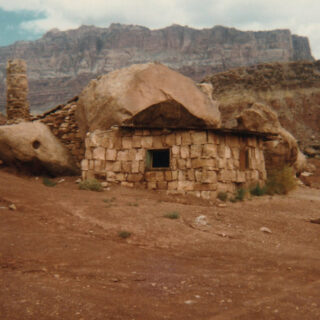Josephine Foster
Domestic Sphere
(Fire)
9/10
ALBUM OF THE WEEK

(Fire)
9/10
ALBUM OF THE WEEK
According to French legend, come midnight each year on Halloween, Death plays a fiddle to wake the dead from their slumber, filling graveyards with skipping skeletons in the Danse Macabre. For many, it’s the origin story – made famous by Saint-Saëns’s tone poem and Walt Disney’s Skeleton Dance – of music’s long-fixated relationship with the supernatural, chronicled from Robert Johnson’s devil blues through to Gazelle Twin’s electronic dalliance with ghosts in sportswear (for The Horror Show at Somerset House). Somewhere between the two, Domestic Sphere, the 14th solo album from Colorado songwriter Josephine Foster, conjures an outback pastoralism less a dance of death than it is a reflective sit with spirits: a repos macabre, its haunting familial, tender and endlessly enchanting.
Recorded and co-produced by Daniel Blumberg, Domestic Sphere’s opening moments are the only seconds grounded in some sort of identifiable reality across its eleven tracks: Blumberg’s studio door creaks open and Foster’s well-heeled footsteps amble over repetitions of lulled acoustic guitar. Their creative partnership has been wanting a full-length record to dive the depths of since the turn of the decade teased some of their best individual work, together. From Foster’s doleful pedal steel cover of Blumberg’s ‘On & On’ to the luscious drone and slow romance of their subsequent collaboration scoring Mona Fastvold’s film, The World To Come, Blumberg’s facility to illuminate the most inconspicuous melody is the perfect anchor for Foster’s moseying mezzo-soprano. Expelling the distance between solitude and loneliness, the quiet orchestrations of Domestic Sphere craft a genuine career best.
A feeling of wonder permeates the entire record, both threatening and sensational. Senses heightened, ‘Entrance’ is cut short by chirping crickets and village cats that could be pterodactyls; ‘Shrine Offering’ ends with a recording of Blumberg lighting a match where the struck flame sounds like a sudden electricity outage into blurred static, or the “stop” of a tape player, whilst Foster’s softly wailed duet with the neighbouring owls on ‘Pendulum’ assures a common language. The album’s warbling heart is warmest on ‘Reminiscence’, where Foster sings to a recording of her great grandmother – “do you remember the time?” – and the recording sings back. It’s freak-folk for a whispered séance, where the sounds of glowing lights and ghostly apparitions appear with warmth and tranquillity, like little family relics that mean everything and nothing all at once.